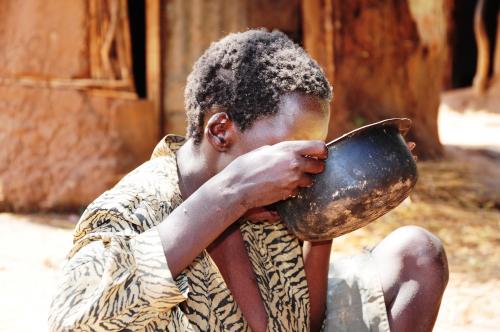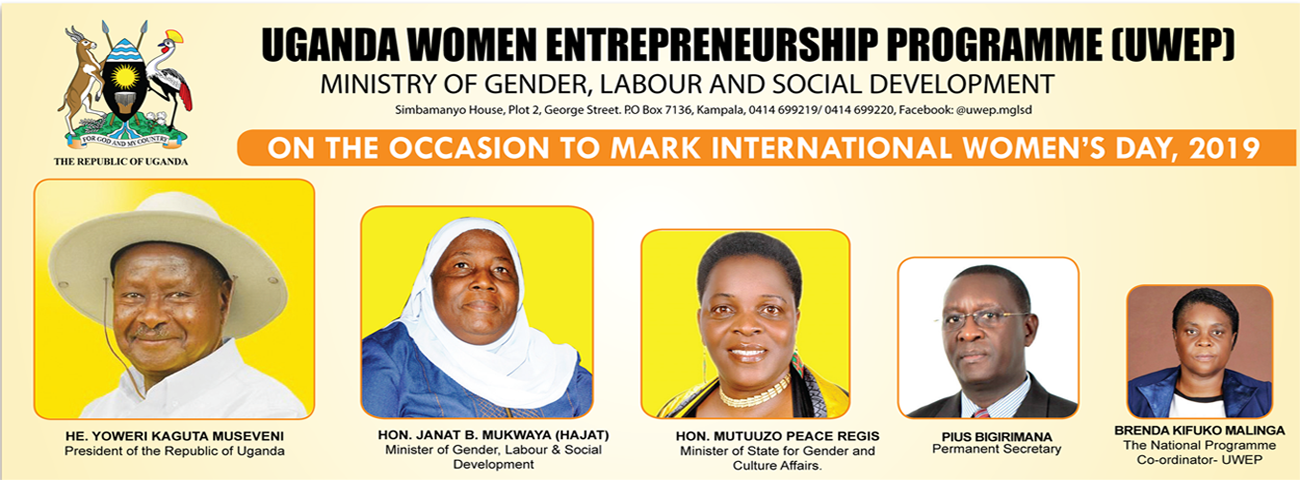Nassali is involved in several farming activities that help her earn regularly
Salimah Nassali was born, raised and educated in Kampala City. She also got employed in Kampala where she was a presenter at Buganda Kingdom owned CBS radio and the defunct WBS TV.
Nassali was a presenter at 88.8 CBS radio in a program called Mutakisa that aired between 10am -12pm, while at WBS TV she was in charge of a programme called ‘Ekyogero’ that aired every Sunday from 10pm-12am.
She spent almost 10 years at CBS having joined the radio station in 2003 until 2012 when she quit as she prepared to go into farming in the village.
While in Kampala, she never at one time imagined happily living in the village let alone surviving on farming.
In 2013, Salimah, 43, decided to go to the village to engage in commercial farming. She’s now happily living in Gaganga village, Kakindu Sub-county in Mityana District. She is engaged in several small income generating projects.
In an interview with Business Focus recently, Nassali revealed how she left Kampala for the village and learnt more about farming in her adult life.
Journey to the village
Nassali says she was living a good life in Kampala because she could easily access whatever she wanted, but at some point her late husband (who was an official in Buganda Kingdom) sat her down and interested her into going to the village because his land lying idle.
Nassali says she didn’t buy the idea instantly but after a year of consulting her friends, she decided to relocate to the village-at first without informing the husband.
“I came here but life was tough; there was no electricity let alone solar power. I had never held a hoe to dig,” Nassali says, revealing that she went equipped with two boxes of gloves because she didn’t want to touch the soil.
“I slowly got used to village life. I soon got solar and my neighbours taught me how to carryout farming. I have now mastered the art and science of farming so much that I am now a model farmer around. I even sell food to people who taught me farming,” Nassali says with a beaming smile.
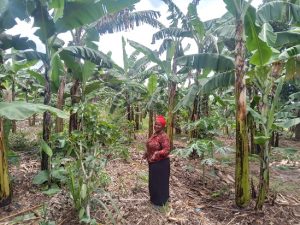
Nassali adds that she started serious commercial farming in 2017 on 15 acres of land.
She first planted 150 suckers of bananas (matooke) in 2013.
“I didn’t how to plant banana suckers, but my husband helped me out,” she says, adding that she also started attending workshops and seminars about farming where she acquired a lot of knowledge.
She also found 50 old coffee trees in the village that were unproductive and she was advised to stump them. She says they soon rejuvenated.
She says she collects the coffee and sells it at once; she sells an average of 300kgs of Kasse (Fair Average Quality-FAQ) in a year from the 50 trees.
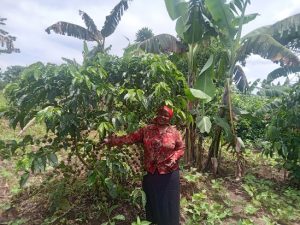
“I give my trees extra care, so the yields are high. I only sell kasse (FAQ). I get back my husks which I use as manure. I use the rest in the chicken coop,” she says, adding that she recently planted more 120 coffee trees of KR varieties.
Small is big
Nassali has learnt the art of farming that has seen her set up several small income generating activities that help her avoid cash flow issues.
Besides coffee and matooke, Nassali is also engaged in poultry keeping, goats rearing, maize and beans farming. She also has a few mango trees and passion fruits that earn her extra money.
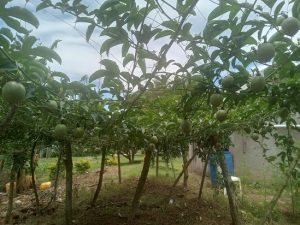
For poultry, she mainly rears the Kuroiler breed. At the time of the interview, she was busy selling chicken since it was approaching Easter. She had remained with about 20 birds and restocking plans were underway.
She says she currently has 15 goats, having started with one goat a few years ago.
“Many people are increasingly seeking knowledge on farming from me, but I must emphasize that it’s all about passion on what I do. I do small things but I give them care and attention,” she says, adding that some farmers make a mistake to invest big in one farming project and once it backfires, they abandon farming yet it is ‘rewarding’ for those that invest wisely.
Nassali says the various projects allow her not to fall into debts.
“I don’t have a debt. My projects are self-sustaining. I also pay myself. When I sell five bunches of matooke at an average of Shs100,000, I pay myself first. Out of Shs100,000, I can pay myself Shs30,000,” she says, adding that she never lacks food both for home consumption and commercial purposes.
BlackOff Organic Fertilizer comes in handy
Nassali says besides organic manure, she uses ‘BlackOff’ Liquid Organic Fertilizer, a broad spectrum pest-repellent natural fertilizer produced by Reticia Products Research.
“I started using BlackOff in 2017. I use BlackOff on all my crops as a fertilizer and pesticide. The Black Coffee Twig Borer was a big challenge on my coffee but it’s no more because of BlackOff,” she says, adding: “Look at my ‘lusuku’ (banana garden) and compare with that of my neighbour. There’s is a huge difference, thanks to BlackOff,” she says as we walk around her well kept banana garden.

She adds that BlackOff has helped her increase production at a reduced cost.
“At first I was skeptical about this fertilizer but it has worked for me. That’s why I buy it in jerrycans. I encourage farmers to try it out. They won’t regret,” she says.
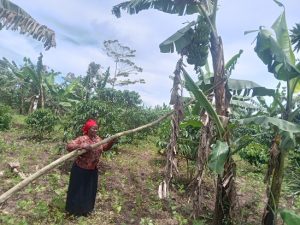
On August 19, 2022, the Agricultural Chemicals Board under the Ministry of Agriculture, Animal Industry and Fisheries (MAAIF) approved the registration of ‘Black Off’ after Government-owned Namalere Agricultural Centre carried out extensive research on the product and found its composition to be NPK 4:14:11+Amino Acids (in technical terms).
Achievements
Nassali says she started with almost nothing but when she sold coffee, she was able to buy two tents that can accommodate 50 people each. She also sold matooke and mangoes (from eight trees) and bought 100 plastic chairs. These are hired by people with events in the village and the surrounding villages.
“This helps me get extra income,” she says, adding that she is also able to pay school fees for her young children using proceeds from farming.
Challenges
Nassali says farming without use of herbicides has almost become impractical yet they (herbicides/weed killers) harden the soil.
“If we can have organic weed killers that would be great,” she says, adding that reliable workers are also scarce in her area.
Advice
“I would like advise employees to think of having extra sources of income. If you have an acre of land, you can be innovative and earn from it more than one with five acres who’s not innovative,” she says, adding that the land can be subdivided to have various farming projects.
“When you see me, you can’t tell if I’m in the village or not. I take care of myself and have peace of mind. I’m practically involved in farming because I don’t have workers,” Nassali says.
She adds that farmers should give attention to their farms because inspection is very key.
For tips or get featured, opinions and advertising, Tel: 0775170346/0703828741/staddewo@gmail.com. Follow us on Twitter: @TaddewoS @BusinessFocusug





